Cloud computing has revolutionized the way we store, process, and access data, offering businesses and individuals unprecedented scalability, flexibility, and cost-effectiveness.
By mastering cloud computing, you can unlock a world of opportunities in fields like software development, data science, and system administration, gaining the skills to design, deploy, and manage applications on leading cloud platforms like AWS, Azure, and Google Cloud.
Whether you’re a seasoned IT professional or just starting your tech journey, a strong foundation in cloud computing is essential for success in today’s digital landscape.
Finding a comprehensive and engaging cloud computing course can be a daunting task, with numerous options available online.
You want a program that covers the fundamental concepts, provides hands-on experience with popular cloud platforms, and equips you with the practical skills needed to thrive in a cloud-driven world.
You’re looking for a course that’s both challenging and accessible, taught by industry experts, and tailored to your learning style and career goals.
Based on our thorough analysis, the Cloud Developer Nanodegree offered by Udacity stands out as the best cloud computing course overall.
This comprehensive program provides a deep dive into cloud development, covering essential concepts, popular platforms like AWS, and in-demand technologies like microservices and serverless computing.
With hands-on projects and expert guidance, you’ll gain the practical skills needed to build and deploy scalable cloud applications.
While the Cloud Developer Nanodegree is our top recommendation, we understand that you might be looking for something more specific to your needs or preferred learning style.
We’ve curated a list of other exceptional cloud computing courses catering to different levels, platforms, and areas of focus.
Keep reading to explore our detailed reviews and find the perfect course to launch your cloud computing journey.
Cloud Developer Nanodegree
Provider: Udacity
This Udacity Cloud Developer Nanodegree equips you with the skills needed to thrive in the world of cloud computing.
You will become proficient in AWS, a leading cloud platform, and explore the realms of microservices and serverless technologies.
You will start by grasping the fundamentals of cloud computing, including concepts like compute services, storage, security, and networking.
You will even learn how to deploy a simple website on AWS.
The journey then progresses to building full-stack applications, where you’ll dive into REST API development, work with databases, and secure your applications.
The program further challenges you to break down large applications into smaller, more manageable microservices.
You’ll employ Docker for containerization and Kubernetes for orchestration.
This practical experience prepares you to refactor existing applications into a modern, scalable microservices architecture.
Finally, you will explore the world of serverless computing with AWS Lambda, where you can run code without the hassle of server management.
You will build and deploy serverless applications, implement REST APIs, manage events, and ensure proper authentication.
This comprehensive approach ensures you gain a well-rounded understanding of serverless architecture and its practical implementation.
Preparing for Google Cloud Certification: Cloud Architect Professional Certificate
Provider: Coursera
This Coursera course series is your guide to becoming Google Cloud certified.
You will begin with the fundamentals of Google Cloud, learning the essentials of its core infrastructure, including compute, storage, and networking.
You will become familiar with key concepts such as Virtual Private Cloud (VPC), subnetworks, IP addresses, and firewall rules, which are vital for managing network security.
You will get hands-on experience creating and managing virtual machines (VMs) with Compute Engine.
The course then introduces you to more advanced Google Cloud concepts, like autoscaling and load balancing, teaching you how to automate infrastructure deployment and efficiently manage resources.
You’ll learn about managed services, which can handle many tasks, so you can focus on the bigger picture.
As you progress, you’ll explore how to design and build reliable cloud solutions, including learning about disaster recovery, incorporating site reliability engineering principles, and understanding Service Level Indicators (SLIs) and Service Level Objectives (SLOs) to measure performance.
You will acquire the essential skills to confidently design, deploy, and manage robust cloud solutions that meet real-world business needs.
You will gain a thorough understanding of Google Cloud’s core services, learning how to manage and monitor resources such as storage, billing, and access control.
You will even delve into data security with techniques like customer-supplied encryption keys and security access management.
Finally, you’ll prepare for the Professional Cloud Architect (PCA) certification exam.
You’ll examine the five key domains covered in the exam, identify your knowledge gaps, and gain a clear understanding of the areas to focus on to succeed.
This course series provides you with the practical skills and knowledge to design and build applications on Google Cloud, culminating in your preparation for the Professional Cloud Architect certification exam.
Ultimate AWS Certified Solutions Architect Associate SAA-C03
Provider: Udemy
You’ll begin by exploring the core building blocks of AWS, including regions and availability zones.
Then, you’ll dive into IAM, learning how to control access to your AWS resources by creating users, groups, and policies.
You will also discover how to bolster your security with multi-factor authentication.
The course then guides you through the fundamentals of EC2, where you’ll create and manage virtual servers in the cloud.
You’ll explore different EC2 instance types, learn about security groups, and connect to your instances securely using SSH.
As you progress, you’ll master the art of building highly available and scalable applications.
This includes using Elastic Load Balancing to distribute traffic and Auto Scaling Groups to adjust resources based on demand.
You’ll delve into the world of serverless computing with AWS Lambda, enabling you to build and run applications without managing servers.
Additionally, you’ll explore a range of AWS services, including S3 for scalable storage, Route 53 for reliable DNS management, and various database options like RDS, Aurora, ElastiCache, and DynamoDB, learning how to select the best fit for your application needs.
The course also features hands-on exercises that allow you to apply what you learn, gaining practical skills you can use immediately.
Cloud Native Application Architecture Nanodegree
Provider: Udacity
This program equips you with the skills to build and manage applications that can handle massive amounts of traffic and data, just like the apps from companies like Snapchat and Google.
You’ll begin with the fundamentals of cloud-native architecture, learning how to design applications that are scalable and resilient.
You’ll become proficient in Kubernetes, the industry-standard container orchestration platform, gaining hands-on experience in deploying and managing applications at scale.
The program delves into essential concepts like CI/CD, enabling you to automate your software development and deployment processes.
You’ll then explore message passing, a crucial aspect of building distributed systems.
You’ll discover how to break down monolithic applications into smaller, more manageable microservices, and learn how to use technologies like gRPC to enable these services to communicate effectively.
You’ll also master the art of observability, understanding how to monitor your applications’ health, performance, and security.
Using tools like Grafana, you’ll build dashboards to visualize critical metrics, ensuring your applications are running smoothly and efficiently.
The program emphasizes security from the ground up, teaching you how to identify vulnerabilities and implement robust security measures.
You’ll learn how to use techniques like STRIDE for threat modeling and Deepfence for analyzing the security of your software components.
You’ll also dive into hardening Docker and Kubernetes environments, ensuring your applications are protected from potential attacks.
Preparing for Google Cloud Certification: Cloud DevOps Engineer Professional Certificate
Provider: Coursera
This Coursera program provides a solid foundation in Google Cloud Platform (GCP) and prepares you for the Cloud DevOps Engineer Professional certification.
You start with the fundamentals of Google Cloud infrastructure, learning how to design and manage reliable and cost-effective solutions.
You explore key services like Google Compute Engine and Google Cloud Storage, alongside essential resource management tools.
You then dive into Google’s Site Reliability Engineering (SRE) culture, a critical aspect of Google’s success.
You learn about its cultural and technical aspects and how it aligns development and operations teams.
Building on this foundation, you discover how to build reliable and efficient solutions on Google Cloud using proven design patterns.
This includes defining application requirements and translating them into key performance indicators, service level objectives, and service level indicators.
You also learn about Google Cloud’s logging and monitoring services, gaining experience with full-stack monitoring, real-time log management and analysis, debugging code in production, tracing application performance bottlenecks, and profiling CPU and memory usage.
You will explore the world of Google Kubernetes Engine (GKE), Google’s managed Kubernetes service, learning how to containerize applications and run them in GKE.
You will become familiar with the components and architecture of Kubernetes, gaining hands-on experience with tools like Jenkins for continuous delivery.
[NEW] Ultimate AWS Certified Cloud Practitioner CLF-C02
Provider: Udemy
This comprehensive course will take you from cloud novice to AWS Certified Cloud Practitioner.
You will begin with the fundamentals of cloud computing, learning how traditional IT infrastructure compares to the cloud, and understanding the different cloud models.
You will quickly dive into the specifics of AWS, exploring its console and various services.
You’ll learn about the Shared Responsibility Model and AWS Acceptable Policy, which are essential for understanding security in the AWS environment.
You will then delve into Identity and Access Management (IAM), a cornerstone of AWS security.
The course guides you through creating users and groups, defining policies to manage access, and implementing Multi-Factor Authentication (MFA) for enhanced security.
You’ll also learn how to set up and use the AWS Command Line Interface (CLI), a powerful tool for interacting with AWS services.
The course then focuses on Elastic Compute Cloud (EC2), one of the most popular AWS services.
You will learn how to create and manage virtual machines called EC2 instances.
You will discover the different EC2 instance types available, each suited to different workloads.
You’ll also learn about security groups, which act like firewalls for your instances, controlling network access.
The course will teach you how to connect securely to your instances using SSH.
You will explore various AWS services and tools.
You will explore S3 for storage, databases like RDS, and serverless computing with Lambda.
You will learn how to use ELB to distribute traffic and ASG to scale your applications based on demand.
You will become familiar with AWS security services, monitoring tools, and even get a taste of machine learning with services like Rekognition and SageMaker.
Cloud Computing for Business Leaders Nanodegree
Provider: Udacity
This Udacity Nanodegree helps you understand how to use cloud computing to make your company better.
You will discover the benefits of cloud computing, explore the different types of cloud services, and learn how to create a plan to use cloud computing in your company.
You will also learn about the future of cloud computing and how it will continue to change the business world.
This course teaches you important concepts like cloud governance models – which are like rules for using cloud services – and how to build an organization that’s ready for the cloud.
You’ll learn how to effectively use cloud technologies, like Google Cloud Platform and AWS, in your company’s daily work, which can help your company grow and run more smoothly.
The course instructor, Sanjay Agrawal, has many years of experience working at important tech companies like AWS, Microsoft, and Sun Microsystems, so he knows what it takes to make cloud computing work for your business.
He will share real-world examples to help you understand the challenges and opportunities of cloud computing, ultimately preparing you to create your own cloud computing strategy.
You’ll learn how to create a cloud transformation strategy for your company, helping it to become faster, more cost-effective, and more competitive.
Preparing for Google Cloud Certification: Cloud Engineer Professional Certificate
Provider: Coursera
This Coursera program equips you with the knowledge and skills to succeed as a Google Cloud Professional Cloud Engineer.
You’ll start with the fundamentals of Google Cloud Platform (GCP), understanding how Google structures and manages its infrastructure.
You’ll learn about Virtual Private Clouds (VPCs), networks, subnetworks, and different storage options like Cloud Storage.
You’ll also get hands-on experience with essential tools like Cloud Shell and Google Cloud Marketplace.
You’ll then dive into Google Compute Engine, mastering the art of managing virtual machines (VMs) and deploying applications.
You’ll learn to build secure networks using VPCs and firewall rules, customize VM instances, and understand Google Cloud’s billing system.
The program emphasizes securing your infrastructure with Identity and Access Management (IAM) and monitoring resources effectively using the operations suite.
You’ll then explore advanced concepts like scaling and automating your infrastructure.
You’ll connect your infrastructure to Google Cloud, configure load balancers and autoscaling for VMs, and leverage managed services to streamline your workflow.
The program introduces you to Kubernetes, a powerful container orchestration platform, and you’ll gain experience with Google Kubernetes Engine (GKE).
You’ll learn to manage software containers and store container images in Container Registry, preparing you for complex cloud deployments.
Finally, you’ll focus on preparing for the Associate Cloud Engineer certification exam.
The program guides you through the five key domains covered in the exam, helping you identify any knowledge gaps and create a personalized study plan.
Introduction to Cloud Computing on AWS for Beginners [2024]
Provider: Udemy
If you want to break into the world of cloud computing, this course on Amazon Web Services (AWS) is a great place to start.
You’ll begin with a hands-on demo and set up a free AWS account to explore everything risk-free.
From there, you’ll build a strong foundation by covering IT fundamentals like networking, client-server models, and different types of storage.
The course clearly explains important cloud computing concepts, like service and deployment models, and dives into key services like EC2 for virtual machines, IAM for access control, and VPC for secure networking.
You’ll then roll up your sleeves and get hands-on experience launching and managing your first virtual machine, connecting to it, and even building a website.
You will explore different ways to store data on AWS, including object storage with S3, persistent storage with EBS, and managing file systems with EFS.
The course also covers how to work with relational databases using RDS and NoSQL databases with DynamoDB, giving you a solid understanding of the different database options available on AWS.
You will then explore more advanced concepts like automation, where you’ll learn how to use CloudFormation to define your infrastructure as code.
You’ll also dive into deploying applications with Elastic Beanstalk, setting up continuous integration and delivery pipelines with CodeCommit and CodePipeline, and even explore containerization with Docker and ECS.
This course doesn’t shy away from serverless computing either - you’ll gain experience working with Lambda functions and API Gateway to build scalable and cost-effective applications.
Finally, you’ll discover how to use CloudFront for content delivery and get guidance on different AWS certifications to further your cloud career.
Also check our posts on:
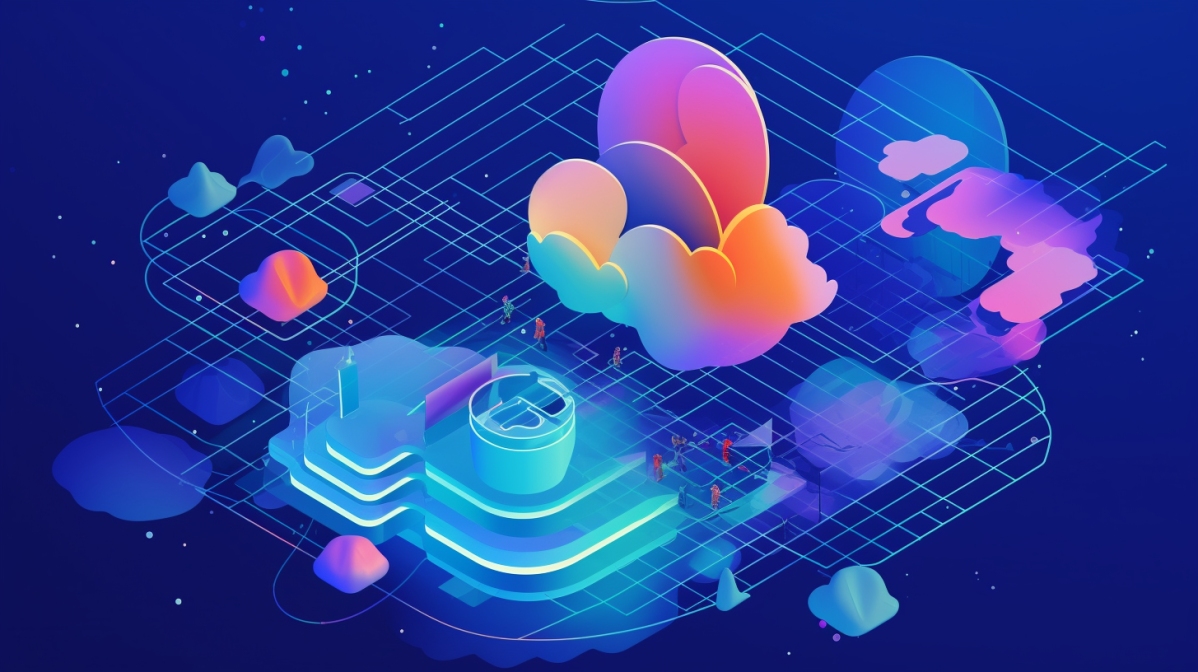

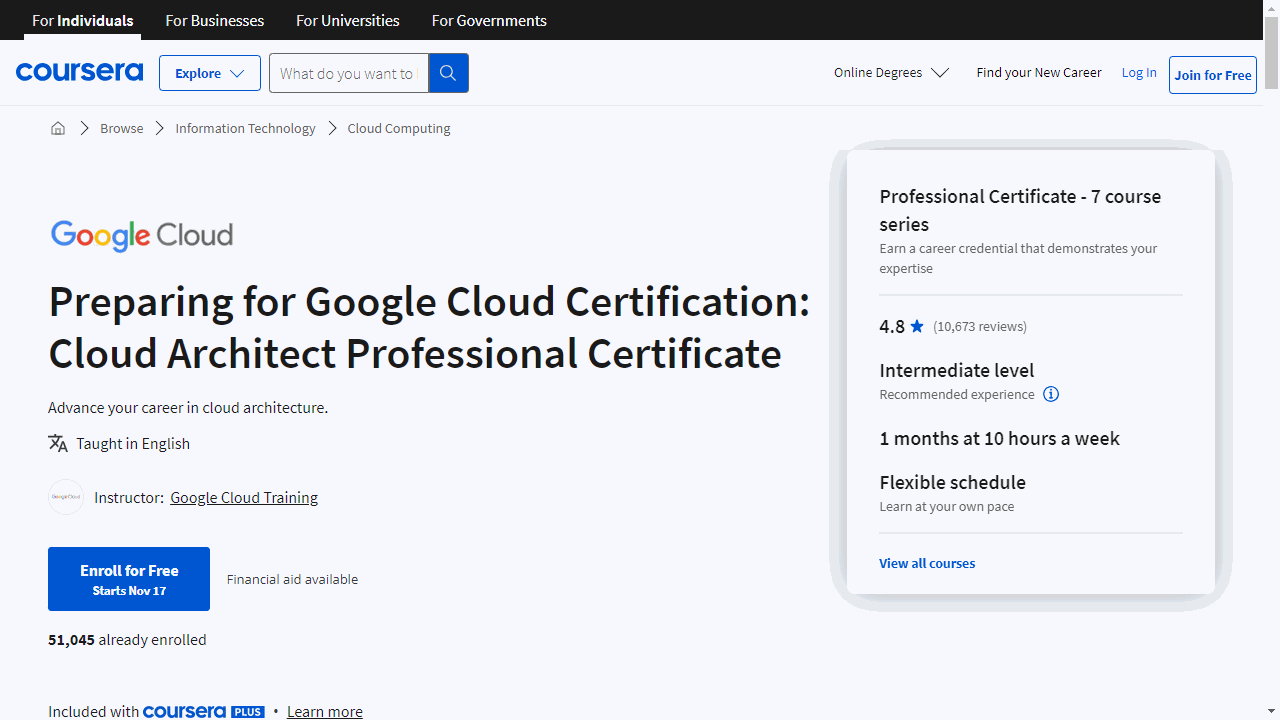
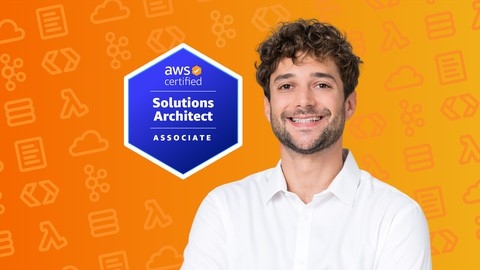

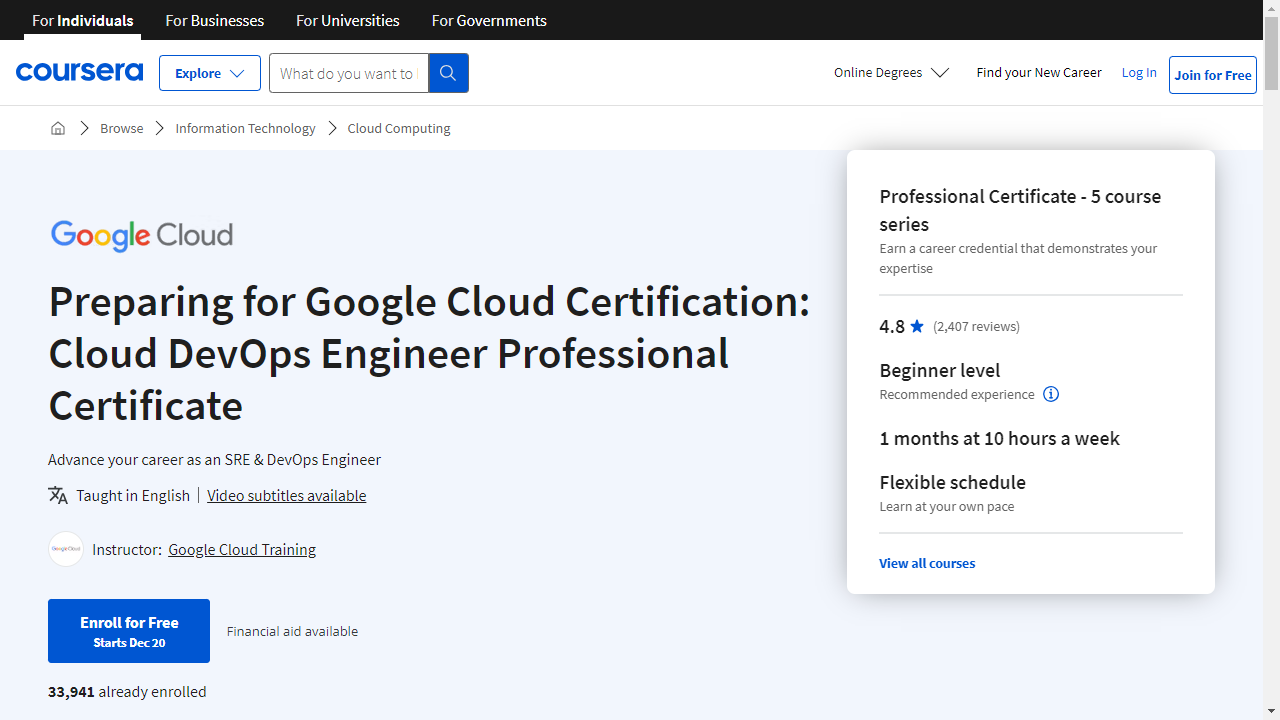
![[NEW] Ultimate AWS Certified Cloud Practitioner CLF-C02](/img/best-cloud-computing-courses-online/3142166_NEWUltimateAWSCertifiedCloudPractitionerCLF-C02.jpg)

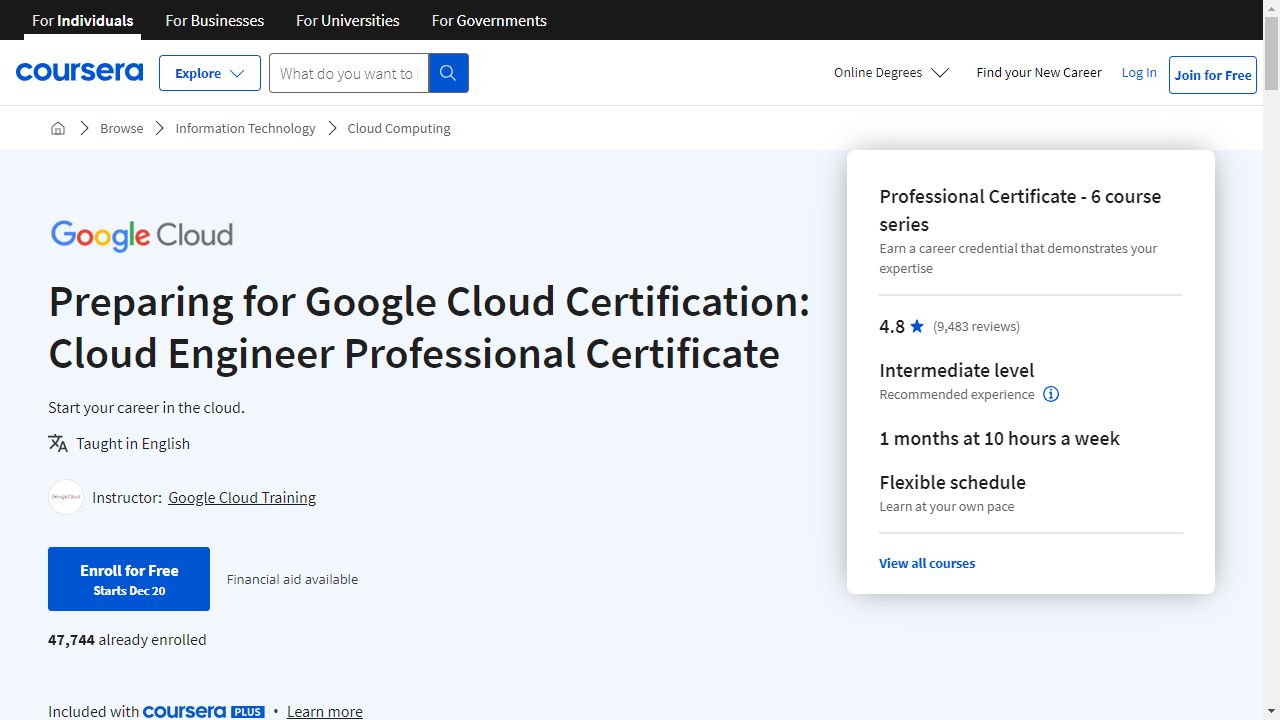
![Introduction to Cloud Computing on AWS for Beginners [2024]](/img/best-cloud-computing-courses-online/3329962_IntroductiontoCloudComputingonAWSforBeginners2024.jpg)